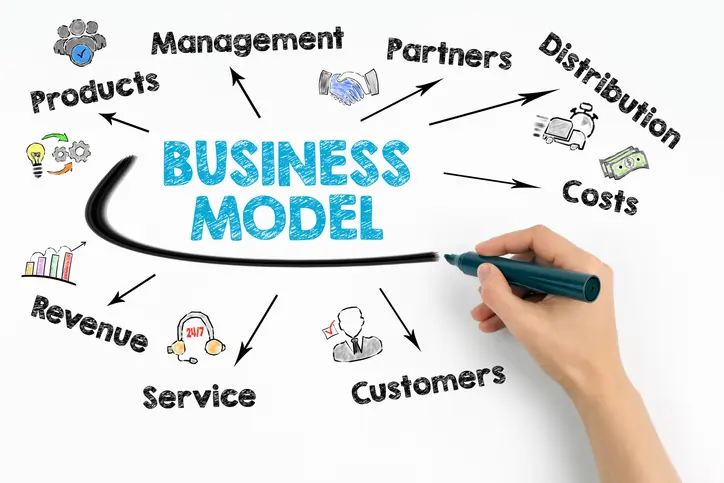
In the dynamic landscape of modern commerce, choosing the right business model is crucial for sustainable success. From traditional approaches to innovative strategies, the array of business models available today caters to various industries and entrepreneurial visions. In this comprehensive guide, we will delve into different types of business models, shedding light on their characteristics, advantages, and suitability for different enterprises.
The traditional brick-and-mortar model:
The brick-and-mortar business model, rooted in physical establishments, has been the cornerstone of commerce for centuries. This model involves setting up a physical store or office, providing customers with a tangible space to explore products and services. While the digital age has seen a rise in e-commerce, traditional businesses remain resilient, offering a personalized touch that online platforms may struggle to replicate.
E-commerce and the rise of online business models:
With the advent of the internet, e-commerce has revolutionized the way businesses operate. Online platforms enable entrepreneurs to reach a global audience, breaking down geographical barriers. From dropshipping to direct-to-consumer models, e-commerce has become a versatile avenue for startups and established businesses alike, offering scalability and efficiency.
Subscription-based models:
Subscription-based models have gained immense popularity in recent years. Whether it’s streaming services, software subscriptions, or curated product boxes, this model ensures a steady stream of revenue through periodic payments. Subscriptions foster customer loyalty and engagement, providing businesses with a predictable income while offering customers a convenient and personalized experience.
Freemium and the art of upselling:
The freemium model, characterized by offering a basic service for free and charging for premium features, has become a strategic choice for many digital businesses. This approach attracts a wide user base initially, creating opportunities for upselling premium features or services. Striking the right balance between free and premium offerings is key to the success of this model.
Affiliate marketing:
Affiliate marketing is a performance-based model where businesses reward affiliates for driving traffic or sales to their products or services. This model leverages existing networks and influencers to expand reach and boost sales. It’s a cost-effective way for businesses to increase their online presence while providing affiliates with an additional income stream.
The sharing economy:
The sharing economy has disrupted traditional industries by facilitating peer-to-peer transactions. Platforms like Airbnb and Uber exemplify this model, allowing individuals to share resources such as accommodations and transportation. The sharing economy fosters resource efficiency, community building, and often a more sustainable approach to consumption.
Franchising as a business model:
Franchising is a proven model for business expansion, where individuals (franchisees) operate their own businesses under the established brand of a franchisor. This model allows for rapid growth without the challenges of managing individual locations. Franchisees benefit from established brand recognition and support from the franchisor.
In the diverse landscape of business models, finding the right fit for your venture is pivotal. Whether you opt for the traditional brick-and-mortar setup, embrace the digital frontier with e-commerce, or explore innovative models like subscription-based services, understanding the strengths and considerations of each is essential. By aligning your business strategy with a well-suited model, you can pave the way for sustained growth and success in the competitive world of commerce.


